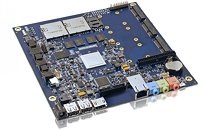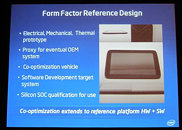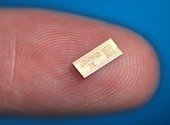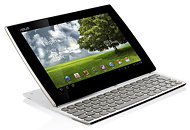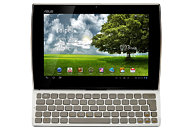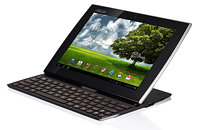
Tegra Completes its Long Walk to the PC, Courtesy Kontron
You could soon have NVIDIA Tegra 3 processors running entry-level PCs. COM (computer-on-module) and IPC (industrial PC) designer Kontron developed an NVIDIA Tegra 3 system board in the slim mini-ITX form-factor (170 mm x 170 mm), which is compatible with most ITX/ATX cases. The board has most common PC peripheral interfaces, and is fit to drive an entry-level PC. The KTT30/mITX from Kontron features an NVIDIA Tegra 3 SoC, with 4+1 ARM Cortex-A9 cores clocked at 900 MHz and GeForce ULP graphics. The GPU is fit to drive 1080p displays with H264 MPEG-4 encoding/decoding acceleration. Display outputs include HDMI 1.4a (up to 1920x1080 pixels), and LVDS 24-bit (up to 2048x1536 pixel @ 18bpp).
The Kontron KTT30/mITX packs 2 GB of DDR3L memory. For storage, it has an mSATA 3 Gb/s port, two SD card slots, and a bootable eMMC slot. Two mPCIe slots and a SIM card slot (for 3G HSDPA) handle on-board expansion. System interfaces include two RS232 (serial/COM), three USB 2.0. Apart from 3G HSDPA, the board supports gigabit Ethernet. For audio, there's 2-channel analog and multi-channel digital (S/PDIF) audio outputs. The board draws power from a 2-pin DC input. The board should be able to run most distributions of Linux for ARM (including Android and Chrome OS), and technically should also be able to run the upcoming Microsoft Windows 8 RT operating system.
The Kontron KTT30/mITX packs 2 GB of DDR3L memory. For storage, it has an mSATA 3 Gb/s port, two SD card slots, and a bootable eMMC slot. Two mPCIe slots and a SIM card slot (for 3G HSDPA) handle on-board expansion. System interfaces include two RS232 (serial/COM), three USB 2.0. Apart from 3G HSDPA, the board supports gigabit Ethernet. For audio, there's 2-channel analog and multi-channel digital (S/PDIF) audio outputs. The board draws power from a 2-pin DC input. The board should be able to run most distributions of Linux for ARM (including Android and Chrome OS), and technically should also be able to run the upcoming Microsoft Windows 8 RT operating system.
